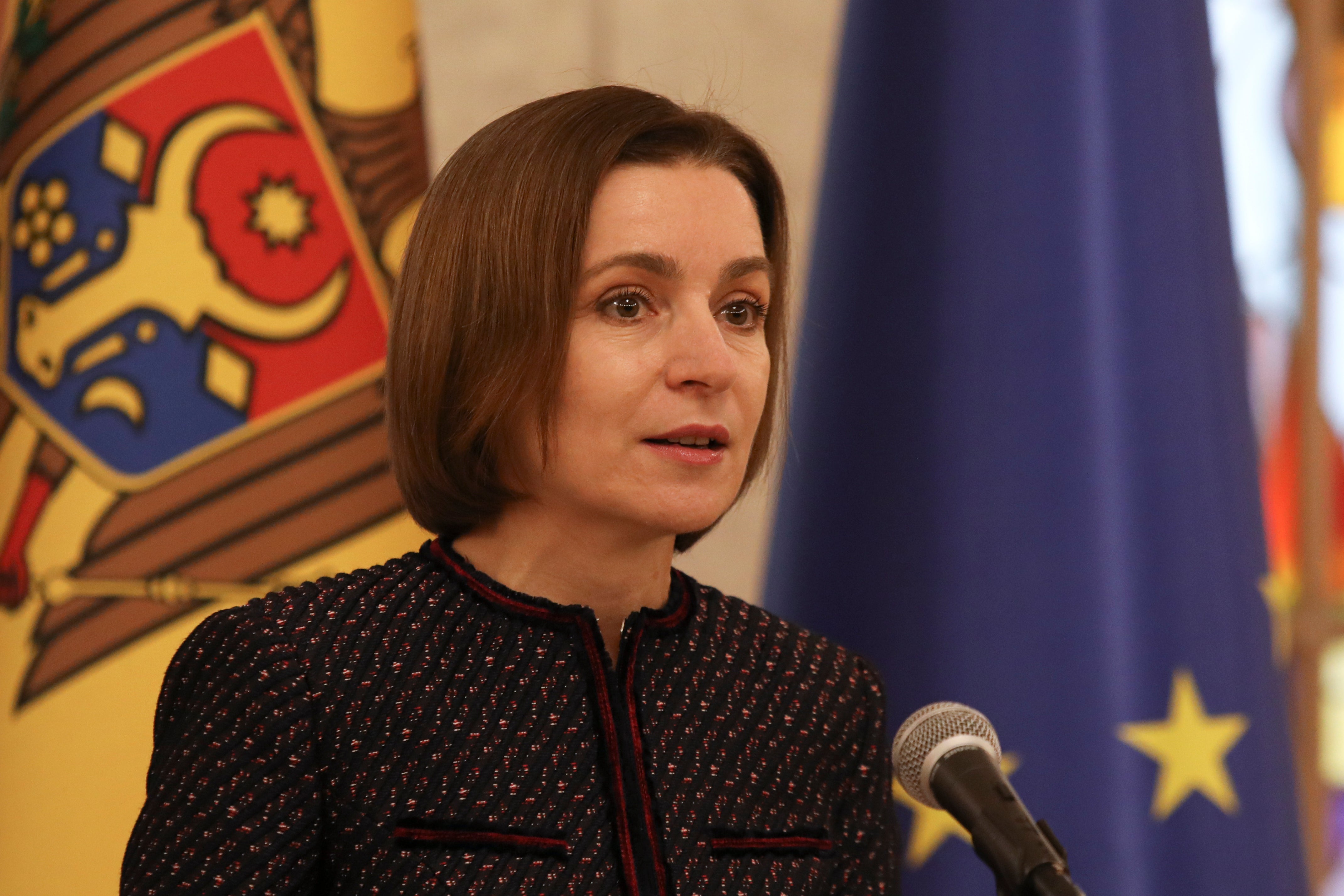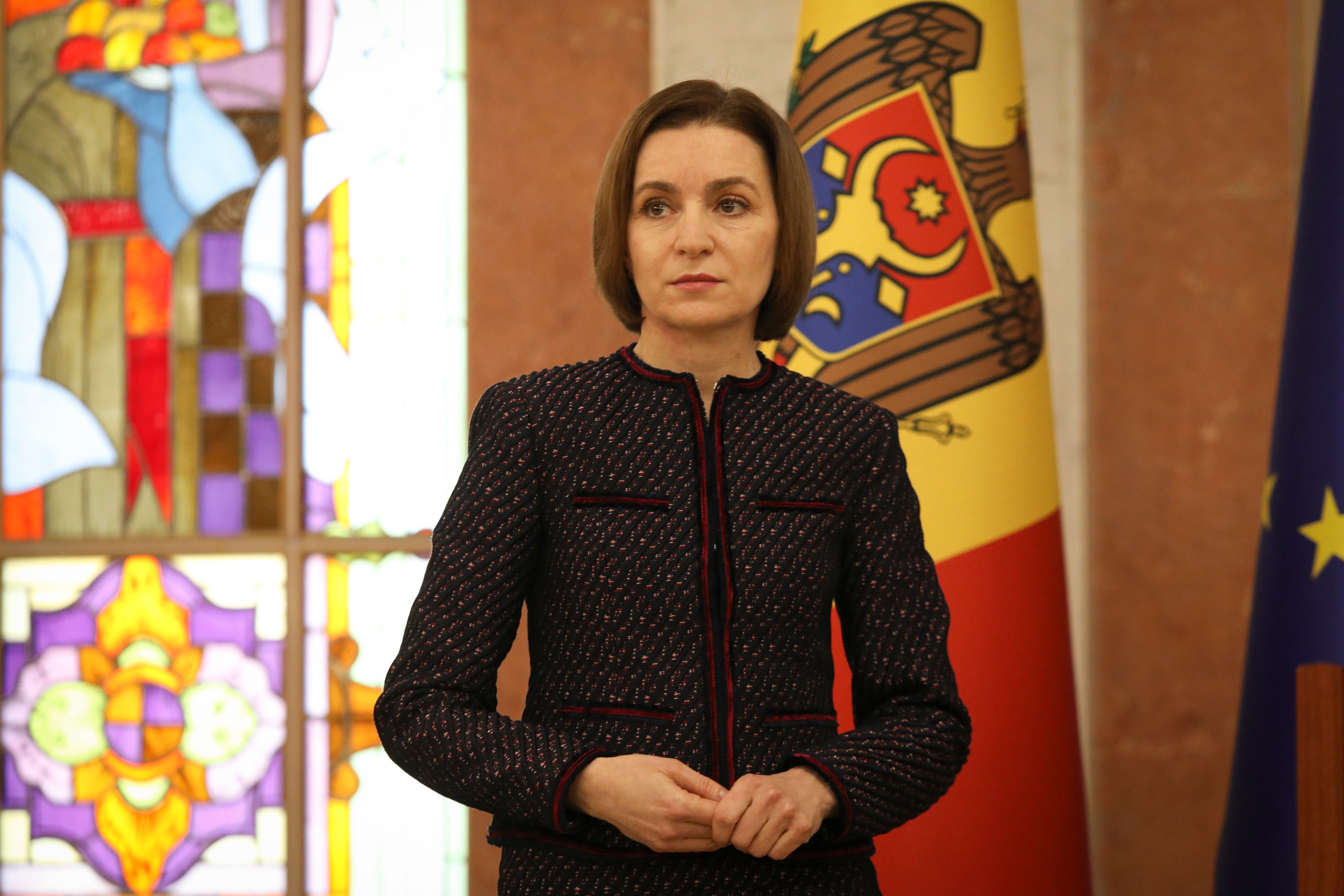Moldova claims Russia has plot to overthrow government with ‘attacks’ on buildings and by ‘taking hostages’
There has been no immediate response to the claims from officials in Moscow

Your support helps us to tell the story
From reproductive rights to climate change to Big Tech, The Independent is on the ground when the story is developing. Whether it's investigating the financials of Elon Musk's pro-Trump PAC or producing our latest documentary, 'The A Word', which shines a light on the American women fighting for reproductive rights, we know how important it is to parse out the facts from the messaging.
At such a critical moment in US history, we need reporters on the ground. Your donation allows us to keep sending journalists to speak to both sides of the story.
The Independent is trusted by Americans across the entire political spectrum. And unlike many other quality news outlets, we choose not to lock Americans out of our reporting and analysis with paywalls. We believe quality journalism should be available to everyone, paid for by those who can afford it.
Your support makes all the difference.Moldova’s President Maia Sandu has outlined what she has described as a plot by Moscow to use “external saboteurs” to overthrow her country’s government – a plan which could involve “attacks” on state buildings and the taking of “hostages”.
President Sandu said the plot is intended to put Moldova “at the disposal of Russia” and derail its aspirations to one day join the European Union.
“The plan for the next period involves actions with the involvement of diversionists with military training, camouflaged in civilian clothes, who will undertake violent actions, attack some state buildings, and even take hostages,” Ms Sandu said.
She continued: “The purpose of these actions is to overthrow the constitutional order, to change the legitimate power from Chisinau to an illegitimate one, which would put our country at the disposal of Russia, in order to stop the European integration process.
“The Kremlin’s attempts to bring violence to our country will not succeed.”
The briefing from President Sandu comes after Ukrainian President Zelensky said his country had intercepted plans by Russian secret services to destroy Moldova. These claims that were later backed-up by Moldovan intelligence officials.
There was no immediate reaction from Russian officials to Ms Sandu’s claims, but the Kremlin has previously denied wanting to intervene in Moldova.
Since Russia invaded Ukraine nearly a year ago, Moldova, a former Soviet republic of about 2.6 million people, has sought to forge closer ties with its Western partners.

It was granted European Union candidate status in June last year on the same day as Ukraine.
President Sandu said that between October and December, Moldovan police and its Intelligence and Security Service, or SIS, have intervened in “several cases of organized criminal elements and stopped attempts at violence”.
Over the past year, Non-Nato Moldova has faced a string of crises. These include energy problems after Moscow dramatically reduced gas supplies; skyrocketing inflation; and several incidents in recent months involving missiles that have traversed its skies, and debris that has been found on its territory.
Moldovan authorities confirmed that a missile from the war in Ukraine had entered its airspace on Friday.
President Sandu said that Russia wants to use Moldova in the war against Ukraine, without providing more details. She claimed that information obtained by intelligence services contained what she described as instructions on rules of entry to Moldova for citizens from Russia, Belarus, Serbia, and Montenegro.
“I assure you that the state institutions are working to prevent these challenges and keep the situation under control,” President Sandu said.
She said that Moldova’s Parliament must adopt draft laws to equip its Intelligence and Security Service, and the prosecutor’s office, “with the necessary tools to combat more effectively the risks to the country’s security.”
The president’s breifing comes after the resignation on Friday of Moldova’s Prime Minister Natalia Gavrilita.
The same day, Ms Sandu appointed her defense and security adviser, pro-Western economist Dorin Recean, to succeed Ms Gavrilita.
On Friday, after Moldovan authorities confirmed the missile incident, US State Department deputy spokesman Vedant Patel said in Washington: “Russia has for years supported influence and destabilisation campaigns in Moldova, which often involve weaponising corruption to further its goals.”
Associated Press contributed to this report





Join our commenting forum
Join thought-provoking conversations, follow other Independent readers and see their replies
Comments